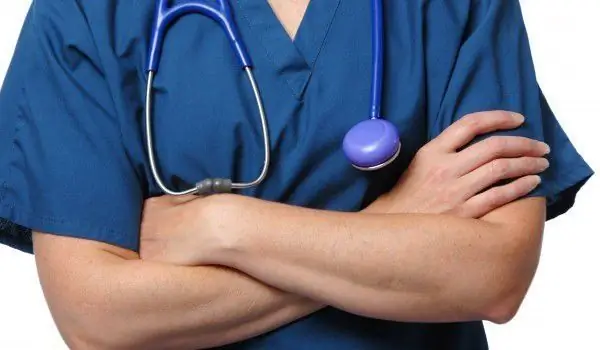2025 Author: Jasmine Walkman | [email protected]. Last modified: 2025-01-23 10:18
You return home after a heart attack and of course you are facing the stage in which you will have to recover. If you have recently experienced this unpleasant thing, your life has already begun to change and you will need to make many more changes to feel healthy again and reduce the risk of additional problems and complications.
You will need to take your medication regularly, start exercising, eat healthy foods, and avoid unhealthy lifestyles that may have contributed to your heart attack. Proper diet, getting good food and avoiding bad ones is an essential part of the recovery process after a heart attack.
Foods rich in saturated fat
After a heart attack, foods that contain saturated and trans fats should be avoided. They accumulate in the blood when consumed too much and this narrows the blood vessels. Eventually, saturated fats can block blood vessels and result in a new heart attack.
The American Heart Association advises removing fried foods, desserts, pasta, and foods from fast food restaurants that tend to be high in saturated or trans fats. Also limit the eating of poultry with skin and high fat meats.
Even some plant foods can contain unhealthy saturated fats, so avoid palm and coconut oils. Read the labels carefully to understand the fat content of the food you buy - saturated fat should include no more than 7 percent of your total daily calories, and less than 1 percent of your total daily calories should be from trans fat.
Foods high in salt and sugar
Salt and sugar pose a serious danger to people who are trying to improve their heart health. Sodium can cause high blood pressure, which can increase the risk of a new heart attack. Many foods contain hidden salt (canned, such as processed or pre-packaged foods and dishes), so avoid foods high in salt.
You should also limit sugar in your diet, as it can contribute to weight gain and increase the risk of another heart attack. Avoid desserts, candies and other sweets with a high sugar content. Avoid fizzy drinks and sweetened fruit juices, because they are also not recommended.
Foods rich in cholesterol
Cholesterol is a major factor in heart disease and heart attack. The liver produces cholesterol, which is a fat-like material that clogs the arteries and causes them to harden. After a heart attack, you should aim for a dietary intake of less than 300 mg per day of cholesterol.
Cholesterol foods should be avoided, and they include meat, eggs, butter and dairy products such as milk, cheese and yogurt. The liver, kidneys, girls, brain and other meats and organs are extremely high in cholesterol and should be avoided after a heart attack.
You should eat often and less without overeating, you should drink enough water and enjoy moderate physical activity.
Recommended:
Pomegranate Protects The Heart From Heart Attack

Pomegranate is on that list of fruits, the consumption of which significantly improves our health. The fruit has the shape of an apple, but inside it is completely different. It has a thin shell, under which are hidden juicy seeds with a ruby red color, which have a beneficial effect on health.
Red Onions Stop The Heart Attack

If you haven't heard, it's time to find out that red onions (onions) reduce the risk of coronary heart disease. It also helps with thyroid problems. In Bulgaria we use more garlic and yellow onions, but it has been found that red is more useful.
Want To Protect Yourself From A Heart Attack? Eat 6 Times A Day

Today, doctors spend much of their time telling patients to eat less, not more. That was about to change after scientists discovered that eating at least six meals a day could be the secret to dealing with heart disease. A study found that half a dozen meals or snacks a day can reduce the risk of death from clogged arteries by more than 30 percent compared to eating 3 or 4 meals a day.
Healthy Eating After A Heart Attack

Nutrition is important for the heart and blood vessels. It can affect both your heart attack recovery and your health after you have had this condition. While some people after a heart attack must strictly follow the recommendations for a healthy diet, others can eat whatever they want.
Dinner After 19.00 Increases The Risk Of Heart Attack

Eating food late at night carries the risk of heart attacks in millions of people around the world, experts warn. This is because eating less than two hours before bed prevents the body from resting at night, as this creates work for it by digesting and absorbing the energy received.

